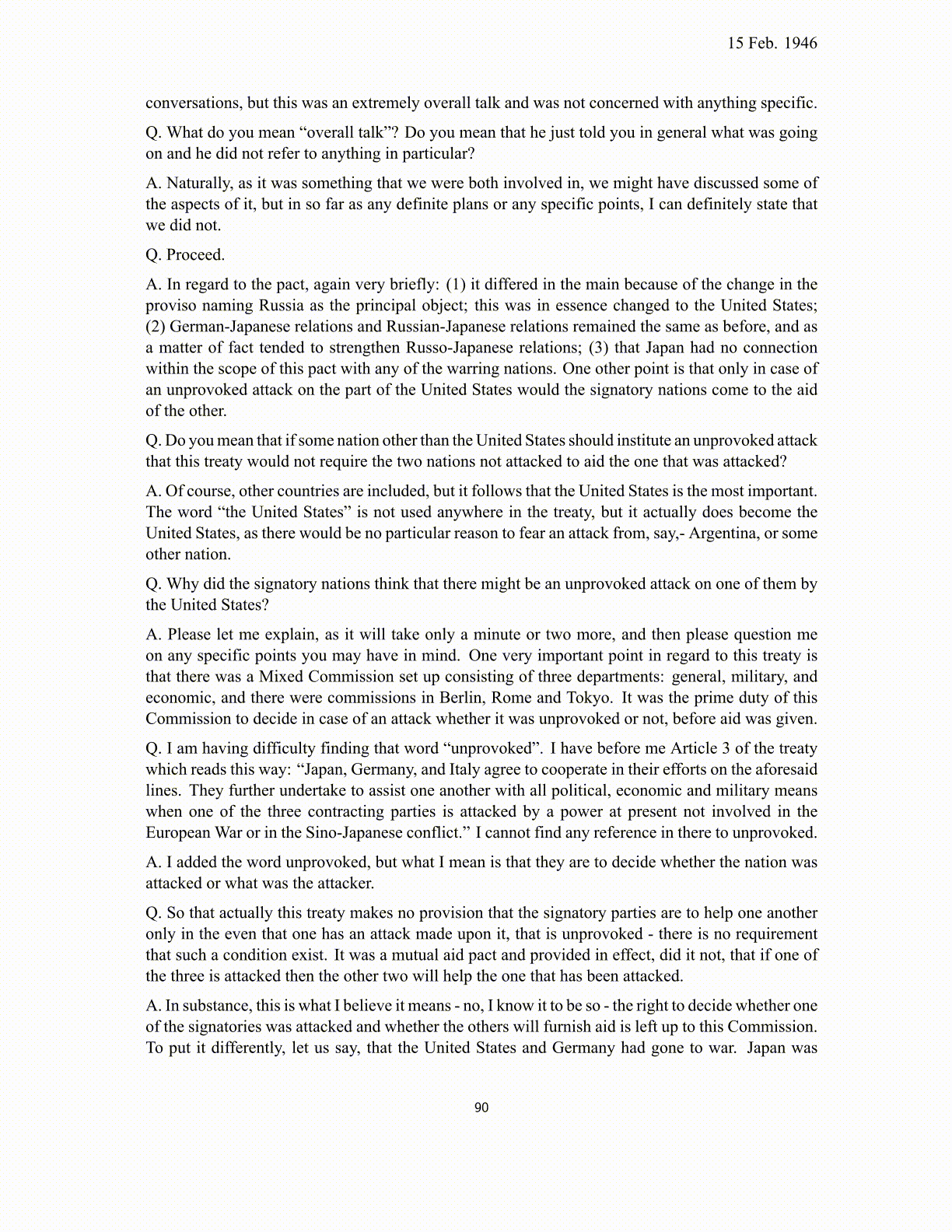
15 Feb. 1946 conversations, but this was an extremely overall talk and was not concerned with anything specific. Q. What do you mean “overall talk”? Do you mean that he just told you in general what was going on and he did not refer to anything in particular? A. Naturally, as it was something that we were both involved in, we might have discussed some of the aspects of it, but in so far as any definite plans or any specific points, I can definitely state that we did not. Q. Proceed. A. In regard to the pact, again very briefly: (1) it differed in the main because of the change in the proviso naming Russia as the principal object; this was in essence changed to the United States; (2) German-Japanese relations and Russian-Japanese relations remained the same as before, and as a matter of fact tended to strengthen Russo-Japanese relations; (3) that Japan had no connection within the scope of this pact with any of the warring nations. One other point is that only in case of an unprovoked attack on the part of the United States would the signatory nations come to the aid of the other. Q. Do you mean that if some nation other than the United States should institute an unprovoked attack that this treaty would not require the two nations not attacked to aid the one that was attacked? A. Of course, other countries are included, but it follows that the United States is the most important. The word “the United States” is not used anywhere in the treaty, but it actually does become the United States, as there would be no particular reason to fear an attack from, say,- Argentina, or some other nation. Q. Why did the signatory nations think that there might be an unprovoked attack on one of them by the United States? A. Please let me explain, as it will take only a minute or two more, and then please question me on any specific points you may have in mind. One very important point in regard to this treaty is that there was a Mixed Commission set up consisting of three departments: general, military, and economic, and there were commissions in Berlin, Rome and Tokyo. It was the prime duty of this Commission to decide in case of an attack whether it was unprovoked or not, before aid was given. Q. I am having difficulty finding that word “unprovoked”. I have before me Article 3 of the treaty which reads this way: “Japan, Germany, and Italy agree to cooperate in their efforts on the aforesaid lines. They further undertake to assist one another with all political, economic and military means when one of the three contracting parties is attacked by a power at present not involved in the European War or in the Sino-Japanese conflict.” I cannot find any reference in there to unprovoked. A. I added the word unprovoked, but what I mean is that they are to decide whether the nation was attacked or what was the attacker. Q. So that actually this treaty makes no provision that the signatory parties are to help one another only in the even that one has an attack made upon it, that is unprovoked - there is no requirement that such a condition exist. It was a mutual aid pact and provided in effect, did it not, that if one of the three is attacked then the other two will help the one that has been attacked. A. In substance, this is what I believe it means - no, I know it to be so - the right to decide whether one of the signatories was attacked and whether the others will furnish aid is left up to this Commission. To put it differently, let us say, that the United States and Germany had gone to war. Japan was 90